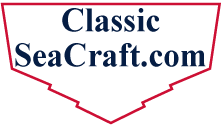| jdm61 |
10-08-2015 12:46 PM |
Quote:
Originally Posted by Terry England
(Post 239357)
jdm61
I agree with you that the 4LH - 170 Yanmar is an excellent small lightweight Marine diesel. Tino and Adib Mastry sold warehouses full of them and many are still running strongly today. I think the Cat 3208-T in 320 Hp rating is a very good motor, but the 210 hp rated 3208's are still pushing around wooden Grand Banks. The Detroit Diesel 71 series in 3 and 6 cylinder in-line configurations is a very good design and has been around since WWII. The Stewart and Stevenson 671 made 450 HP but it's tough to find one that has 1500 hours on it and still runs. The 40 year old 210 HP 671's are still working every day in fishing boats tugs and crew boats. Of course their captains have gone deaf! After 15 years, Ford is still on a mission to show Internation Harvester how to make a high horsepower V-8 diesel for their trucks. The problem is they they really haven't come up with anything better that the 7.3 "Corn Binder" in about 230 hp rating.
It's had to make lots of horsepower in a small engine without creating alot of harmful heat. If you have a little more cubic inches and turn them easy they will last much longer. I just always notice the boat adds say "2002 32' Luhrs, fresh Yanmars......" and some say "1978 34 Hatteras, 265hp - 3208 Cats.....runs good".
|
That is the case with most engines when you jack them up. With that said, I think that there is a lot of fairytale stuff and misinformation in the marine industry, The outboard crowd will tell you how unreliable gasser inboards with outdrives are, yet they will rave about their engines that get about the same horsepower out of significantly smaller aluminum blocks , sometimes supercharged. The "commercial" diesel crowd will tell you how unreliable automotive diesels are, yet turn right around and tell you how they get 10,000 hours out of their marinized light truck (automotive) engine. Likewise, they will try to tell you that a Cummins light truck engine will last forever, but any attempt to marinize say a Duramax will end in disaster, when said Duramx engines apparently have the same level of endurance that the Cummins B series have in commercial light to medium trucks.
As a bit of anecdotal evidence, my dad had a 65 Monterey with jacked up Bivens 16V92's that allegedly put out close to 1700 hp when fresh. They would push that big boat to a top speed of 43 knots with a semi normal fuel and gear load. When he got the boat, they had just been rebuilt. Those engines are supposed to be grenades that you will be lucky to get 1500 hours out of, right? By the time he sold the boat, he had put 4000 hours in the engines and although they were a bit tired, they were still running fine. Of course, one part of that was that our captain typically cruised it at over 1800-1850 rpm and around 28-29 knots instead of the "normal fast cruise' in the mid 30 know range or so, but there you have it. My point being that these automotive diesels are replacements for the automotive engines currently used in recreational boating. I includes outboard in that category, because many of the 4 strokes have automotive roots and it is only recently that we have seen "purpose built" large 4 stock outboard blocks, albeit ones based on automotive technology, but lagging a few years behind. So really, the fair comparison would actually be who the automotive diesels compare to their gas counterparts in automotive applications and then extrapolate for the increased stresses of marine application. The trick with the diesels will be to get the PRICING more in line with that of gas vs diesel in the automotive world where the difference is a couple of thousand dollars not TENS of thousands., but that seems to be coming as more small diesels are marinated. Of course, the bad news is that the economies of scale in the recreational marine industry are such that we can perhaps only hope that the cost of the small diesel engines will eventually get to be slightly less that the cost of the base model of the entire car that they were sourced from, much like Honda and Yamaha outboards. We appear to be at that point with this 150 VW TDI engine. LOL |

